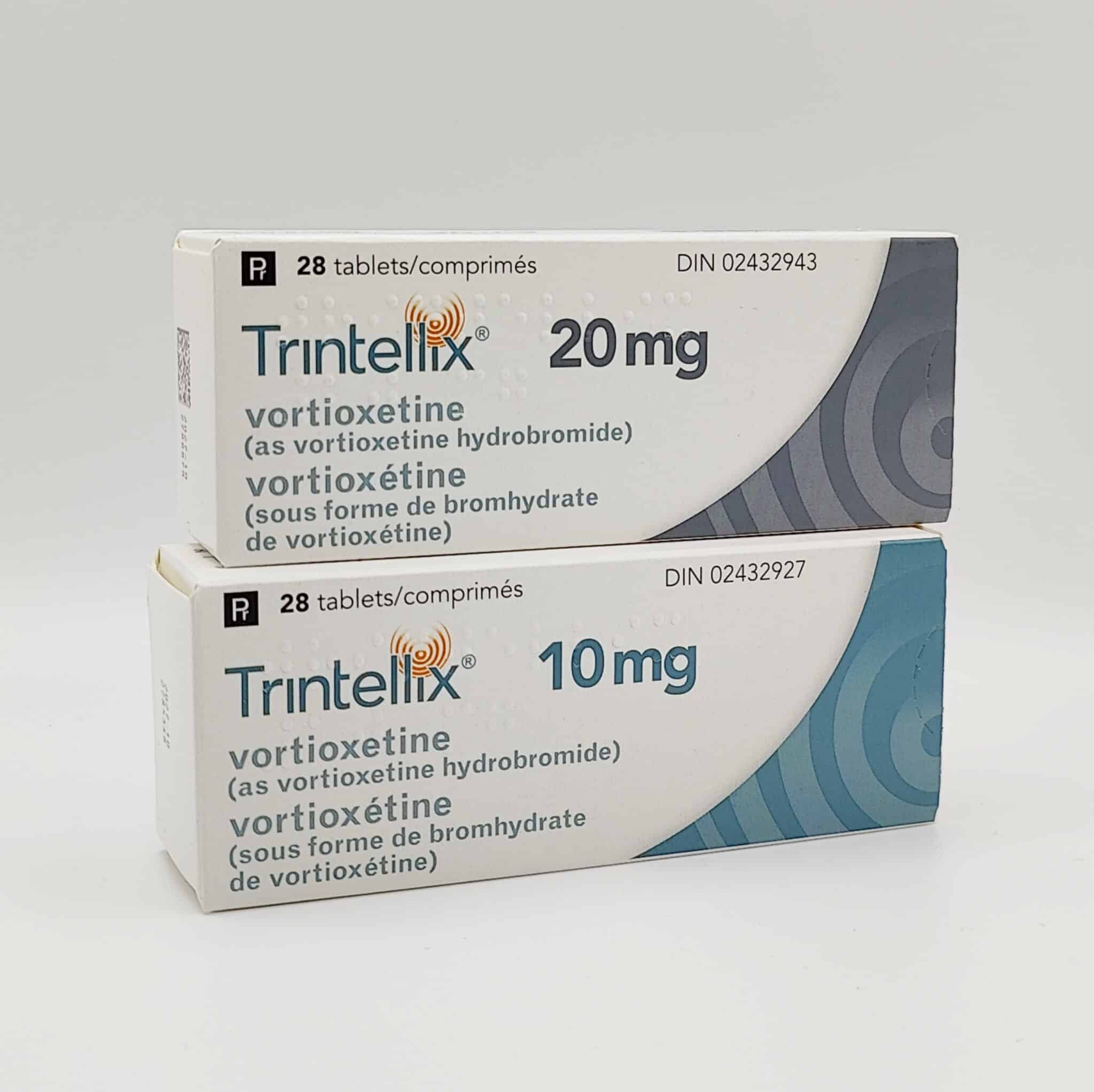Trintellix and Weight Management: What Patients Need to Know
Trintellix and Weight Management: What Patients Need to Know
- Jason K
Weight changes are a common concern for patients starting antidepressant therapy. Many antidepressants are associated with weight gain, which can deter patients from continuing treatment or even starting it in the first place. Trintellix (vortioxetine), however, stands out as a weight-neutral option for managing Major Depressive Disorder (MDD). In this article, we’ll explore how Trintellix affects weight, how it compares to other antidepressants, and tips for maintaining a healthy lifestyle while on the medication.
How Does Trintellix Affect Weight?
Unlike many antidepressants that are linked to weight gain, Trintellix is considered weight-neutral. Clinical studies have shown that patients taking Trintellix generally do not experience significant changes in weight compared to those on placebo. This makes it a preferred option for individuals who are concerned about gaining weight while managing their depression.
Why Is Trintellix Weight-Neutral?
Trintellix’s unique mechanism of action may explain its minimal impact on weight:
- Serotonin Modulation: Trintellix affects multiple serotonin receptors, which helps regulate mood without significantly altering appetite or metabolism.
- Reduced Sedation: Unlike some antidepressants that cause drowsiness and reduced physical activity, Trintellix tends to have a low risk of sedation, helping patients stay active.
Trintellix vs. Other Antidepressants
Trintellix’s weight-neutral profile sets it apart from other common antidepressants:
- SSRIs (e.g., sertraline, fluoxetine): While SSRIs are effective for depression, some patients experience weight gain over time, particularly with long-term use.
- SNRIs (e.g., venlafaxine, duloxetine): These medications may also lead to weight gain, though the risk is lower than with SSRIs.
- Atypical Antidepressants (e.g., bupropion, mirtazapine): Bupropion is often associated with weight loss, while mirtazapine is known for causing weight gain.
- Trintellix: Provides mood and cognitive benefits without significant weight gain, offering a balanced option for many patients.
Tips for Maintaining a Healthy Weight While Taking Trintellix
Even with a weight-neutral medication like Trintellix, adopting healthy habits can support overall well-being and prevent unintended weight changes. Here’s how to stay on track:
1. Focus on Balanced Nutrition
- Choose nutrient-dense foods like fruits, vegetables, whole grains, lean proteins, and healthy fats.
- Limit processed foods, sugary snacks, and high-calorie beverages.
2. Stay Active
- Regular exercise not only supports weight management but also enhances mood. Aim for 30 minutes of moderate activity, such as walking or cycling, most days of the week.
- Incorporate strength training to build muscle, which helps boost metabolism.
3. Monitor Portion Sizes
- Pay attention to serving sizes and avoid overeating, even with healthy foods. Using smaller plates and measuring portions can help control calorie intake.
4. Practice Mindful Eating
- Eat slowly, savor your food, and listen to your body’s hunger and fullness cues.
- Avoid distractions like watching TV or scrolling on your phone during meals.
5. Manage Stress
- Emotional eating is a common response to stress, but managing stress effectively can prevent overeating. Techniques like yoga, meditation, or counseling can help.
What If You Experience Weight Changes on Trintellix?
While weight gain is rare with Trintellix, every patient responds differently to medication. If you notice significant weight changes, here’s what to do:
- Consult Your Healthcare Provider: Discuss your concerns to determine if the weight change is related to Trintellix or other factors.
- Review Your Lifestyle Habits: Evaluate your diet, activity level, and stress management strategies.
- Consider Additional Support: A nutritionist or diabetes educator can provide personalized advice for maintaining a healthy weight.
When to Consider Trintellix for Weight-Conscious Patients
Trintellix is an excellent option for individuals with MDD who are concerned about weight changes. It’s especially suitable for patients who:
- Have experienced weight gain with other antidepressants.
- Are actively working to lose or maintain weight.
- Value both mood improvement and cognitive benefits, such as enhanced focus and decision-making.
Conclusion
Weight management is an important consideration for many patients starting antidepressant therapy. With its weight-neutral profile, Trintellix offers a reliable option for improving mood and cognitive symptoms without significantly impacting weight. By combining Trintellix with healthy eating, regular exercise, and stress management, patients can feel confident in their ability to maintain their weight while focusing on their mental health.
For those concerned about the cost of Trintellix, Canadian prescription referral services can help provide access to affordable options without compromising quality. Talk to your healthcare provider to determine if Trintellix is right for you.


